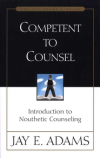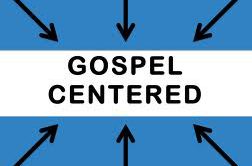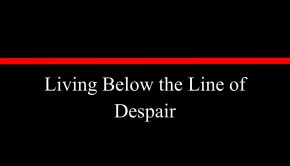Celebrating Reformation 2: Biblical Counseling
In my last post I briefly explained the apologetic of Cornelius Van Til, an apologetic grounded firmly in the doctrines of the sufficiency of Scripture, the depravity of man, the grace of God, and the exclusivity of Christ.
Most people don’t know it, but Van Til’s apologetic has yielded an entire method of counseling. That method is known as nouthetic or Biblical counseling.
It is not uncommon to hear about how pastors are not qualified to deal with the “hard” issues of counseling, issues like suicidal tendencies or eating disorders. Such issues require specialists, psychologists who have been trained. In the 1900s the church yielded great influence over to psychologists and secular counselors. And when we did not outsource to them, we adopted their methodologies as our own.
As is always the case when we abandon Scripture, the result was a huge muddle. Many of the methods of secular psychology have the disadvantage of being deeply secular with only a thin veneer of true scientific psychological merit. Good examples here are the methods of Sigmund Freud and B.F. Skinner. Freud was an atheist, and his presuppositions determined his methods. That any Christian ever thought such methods could be redeemed is an indication of how little we were thinking at the time. Skinner’s method, while different than Freud’s, was also thoroughly unbiblical and anti-Christian. Skinner’s world is a completely materialistic one that will allow for no spiritual problems or solutions.
These are just examples, but they make the point that on the whole the enterprise of psychology has not been very favorable toward Christianity. And the issue is not science versus religion. There’s hardly any real science in the work of Freud, it’s predominately speculative philosophy. Even so, many Christians were duped into adopting presuppositions and methods inconsistent with the Christian faith.
It was in this context that Jay Adams wrote his fantastic book, Competent to Counsel. It’s hard to overstate the value and significance of this work. This work was an atomic bomb in the field of Christian counseling, and it resulted in a sustained assault on secular psychology from Adams and the biblical counselors who have followed him.
With Van Til, Adams held that secular presuppositions must be confronted in light of the truth of Scripture. But Adams applied this to psychological theories and methods, which themselves cannot function free of presuppositions. Those presuppositions, like all presuppositions, either submit to Christ as Lord or rebel against Him. And no Christian should be caught dead with a presupposition that rebels against Christ.
Thus, Adams posited that Christians, especially pastors, should counsel as the Bible prescribes. The vast majority of “psychological” problems are not organic (biological illnesses), and the only other option in the Christian worldview is that they are spiritual. And spiritual problems (which are fundamentally sins) need spiritual solutions. The only logical place for Christians to look for spiritual solutions is Scripture.
Adams suggested a method, which he deliberately sought to derive from Scripture, that entailed confronting sin (or confronting people about sin) and, by the power of the Holy Spirit, putting it off and replacing it with obedience to Christ. The way to do this, of course, is explained in the Bible. It is full of advice for how to renew the mind, avoid various sins, and walk in righteousness.
Notice the presupposition of the sufficiency of Scripture. So convinced of Scripture’s sufficiency was Adams that he was willing to confront any and every allegedly “psychological” ailment solely in light of the guidance Scripture provides. This is a method of counseling grounded in the apologetics of Cornelius Van Til, and it is a thoroughly reformed approach to counseling.
While we all know the Reformation has given us much more to celebrate than presuppositional apologetics and Biblical counseling, these are good illustrations of the importance of the doctrines of Grace, and how they influence our thinking about and engagement with the world. The objective is to submit to Christ as Lord in all of life, and if it can be done in apologetics and counseling, it can be done in every discipline and every subject. Only when we apply the whole Gospel to our whole life can we say:
Soli Deo Gloria,
Josiah










